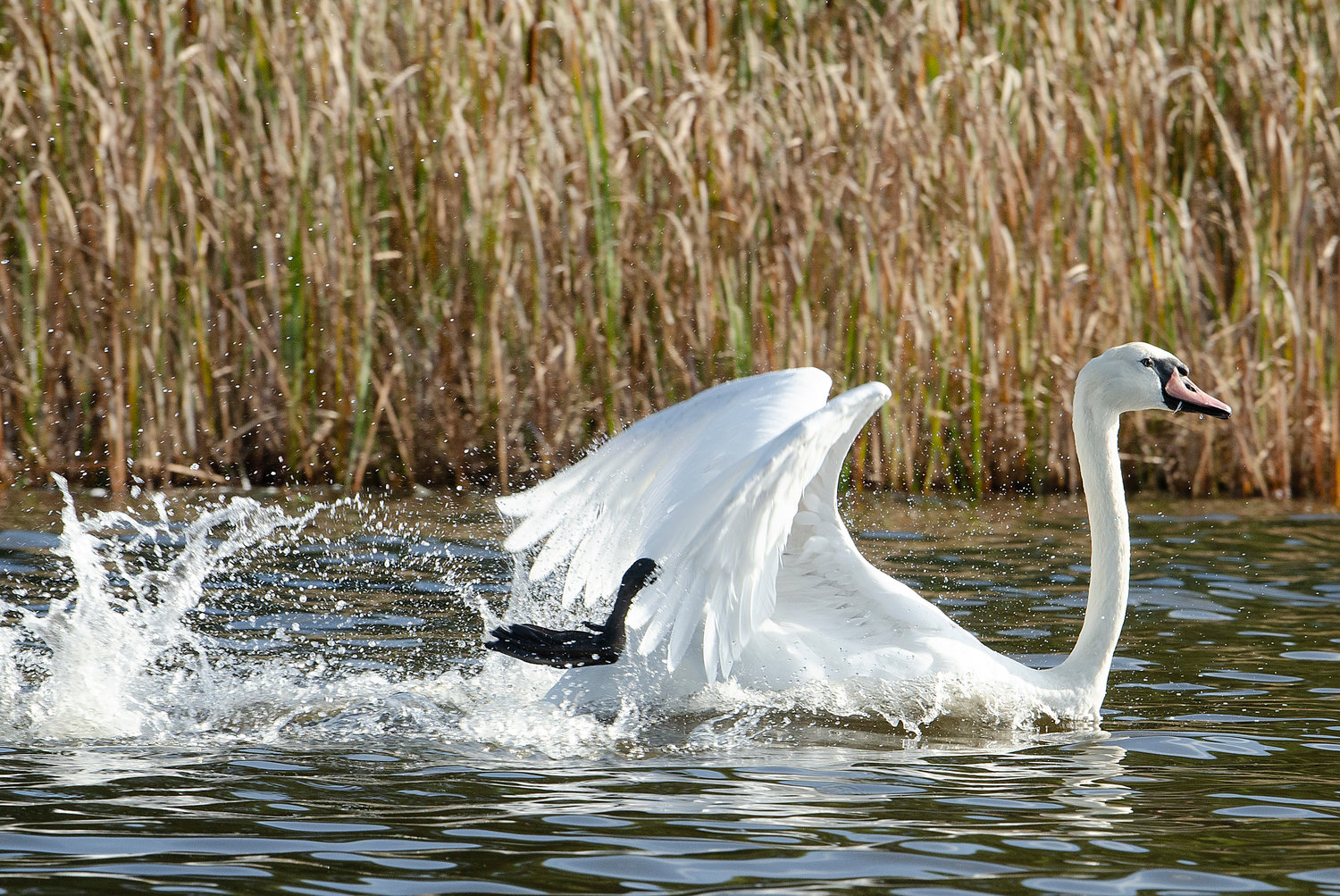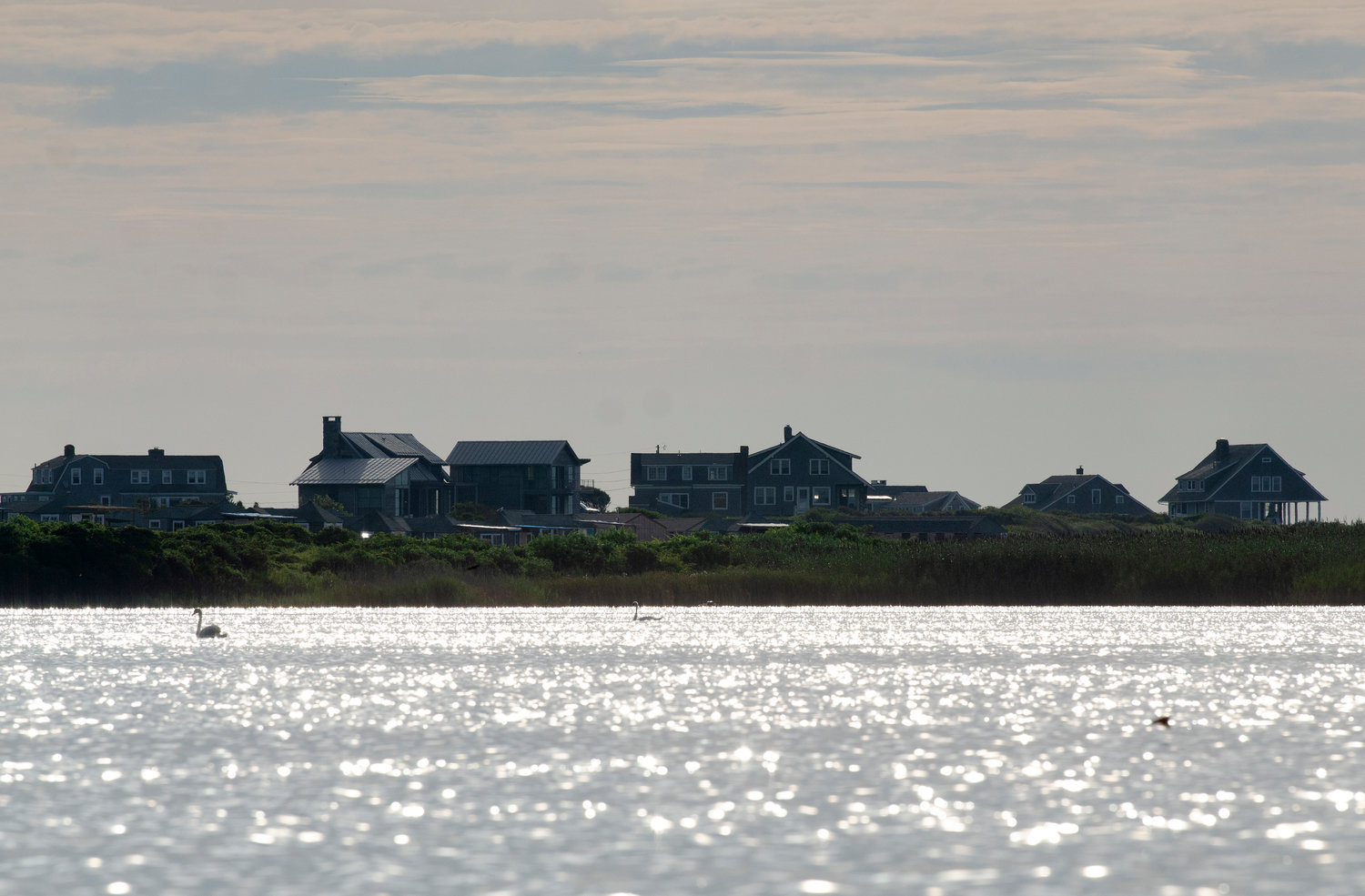DEM calls off Little Compton swan hunt this year
Briggs Marsh currently home to 100 to 200 mute swans
The state Department of Environmental Management (DEM) cancelled this week its plan to euthanize an untold number of mute swans on Briggs Marsh, under a controversial state policy put in place 15 years ago to control the invasive species.
By Tuesday, word had gotten out around the marsh northeast of Sakonnet Point that DEM workers on kayaks and small boats would be capturing and killing swans throughout the day Wednesday. DEM never showed up, however, and a department spokesperson said later in the day that the cull had been called off this year due mostly to timing. The birds are captured and euthanized while they are in their molt, which leaves them unable to fly and thus easier to capture, DEM spokesperson Mike Healey said.
Wednesday and Thursday were "the only two days we could conduct this work within the molting window," he said Wednesday. "With summertime staff schedule challenges and (Thursday’s) uncertain forecast, we will not be going out this year."
The last time DEM conducted the sweep was 2019, as it cancelled last year's hunt in the midst of the COVID pandemic.
The policy is a controversial one on Briggs Marsh, a roughly triangular stretch of water bounded on the west by West Main Road and Warrens Point Road, to the north by Swamp Road and to the east mostly by open space.
Though the numbers are static, Mr. Healey said the population there varies from about 50 swans to as many as 300.
"We counted 200 ... in June and close to 100 at the start of the molt," he said.
As mute swans are an invasive species, proponents of the annual hunt say the management policy helps protect fragile marsh grasses that can be devastated by swans' voracious appetite, keeps fecal coliform bacteria down, controls diseases the birds can carry and protects native waterfowl species, which DEM literature notes are susceptible to being killed by the large, highly territorial birds. He acknowledged that the practice is controversial, but said it is necessary:
"Because mute swans are large, charismatic birds that some people believe have human attributes or characteristics — for example, they mate for life — direct population control by lethal measures is controversial," Mr. Healey said.
"We accept this. There is no way around it. To be a responsible steward of natural resources, to support healthy and sustainable populations of native species of wildlife, however, sometimes puts an agency in the position of making difficult decisions and taking unpopular actions."
Caroline and Tom Taylor, who live in a mid-century home atop a bluff on the marsh's west shore, are among those opposed to the yearly hunt here. Ms. Taylor said she questions the science DEM cites in holding the annual hunt, saying she has not seen evidence of the birds' territorial nature nor the widespread destruction of native grasses.
"It's a horrible thing to see," she said of the annual hunt.
"In nature everything gets along as it should. For man to decide, 'Oh well, the swans have to go,' is just wrong. We have not seen them get aggressive."
How?
The first reports of mute swans in Rhode Island were recorded on Block Island in 1923, and they were first observed attempting to nest on Briggs Marsh in 1948. Since 2006, the state has had a Mute Swan Management Plan in place that authorizes periodic culls as an acceptable means of controlling the population. Addling, another control measure that destroys eggs, is not an effective measure on its own, he said.
Mr. Healey noted that the birds are a non-native species and thus are not protected under the Migratory Bird Treaty Act.
"Since the early 2000s the US Fish and Wildlife Service has charged states and local governments to take effective steps to control mute swans to prevent destruction and degradation of wetlands habitats," Mr. Healey said.
At Briggs Marsh, and at other similar-sized waterbodies throughout the state, the process for collecting and euthanizing birds is similar.
"We would use two boats with three people in each boat, one driving the boat and the others using long poles with a plastic hook at the end to capture birds and pull them toward the boat. Other staff would be in kayaks helping to corral the birds."
Once brought aboard the boats, swans are euthanized there, he said, though he did not say by what means.
He also did not say how many swans were scheduled to be euthanized this year.
But Ms. Taylor said that in years past, a large majority of the pond's population were taken every year.
"If you see all the swans assembled, they'll take maybe three quarters of them," she said. "If they would set a cap, we wouldn't be so upset. But they just take as many as they can."










